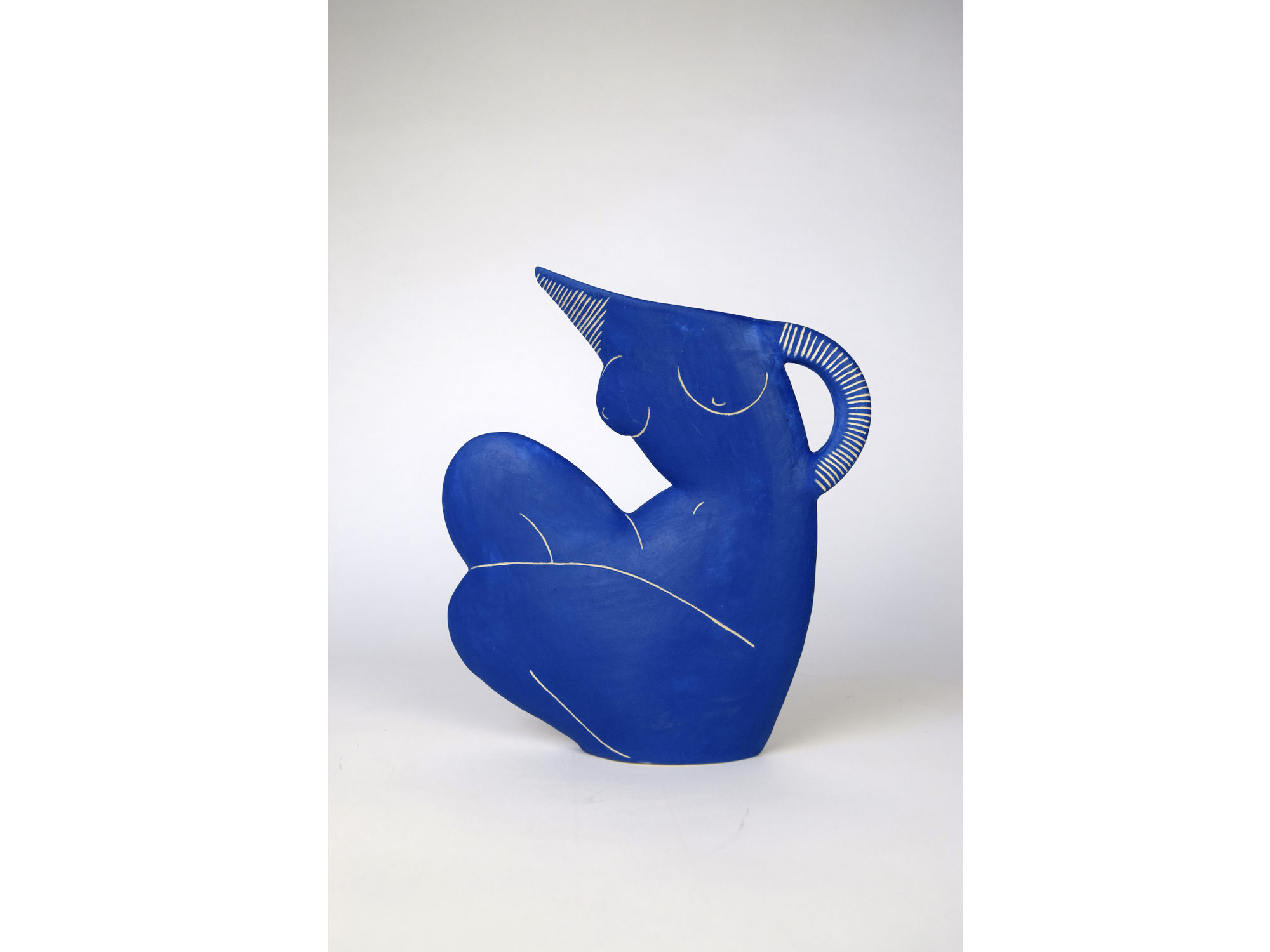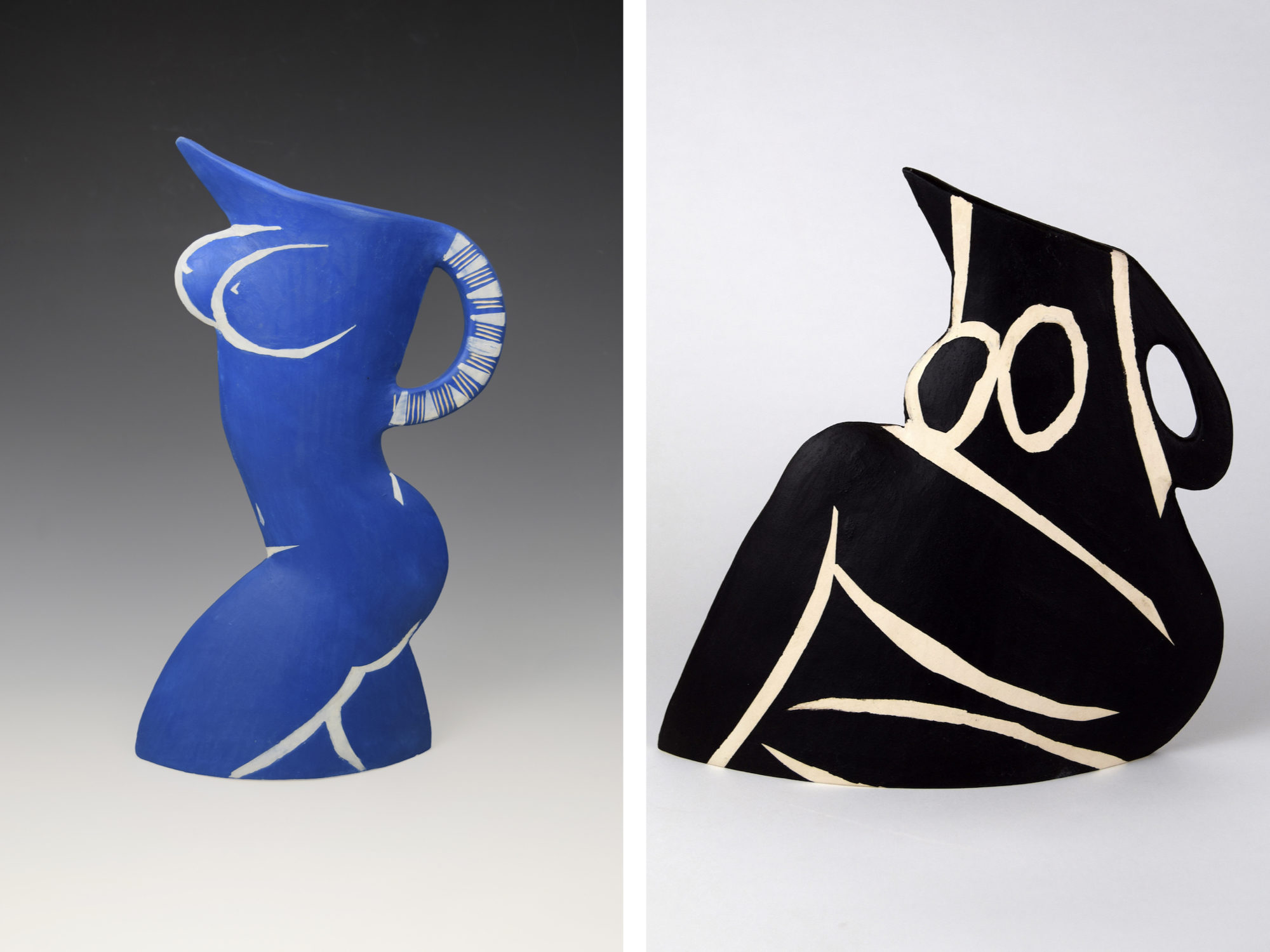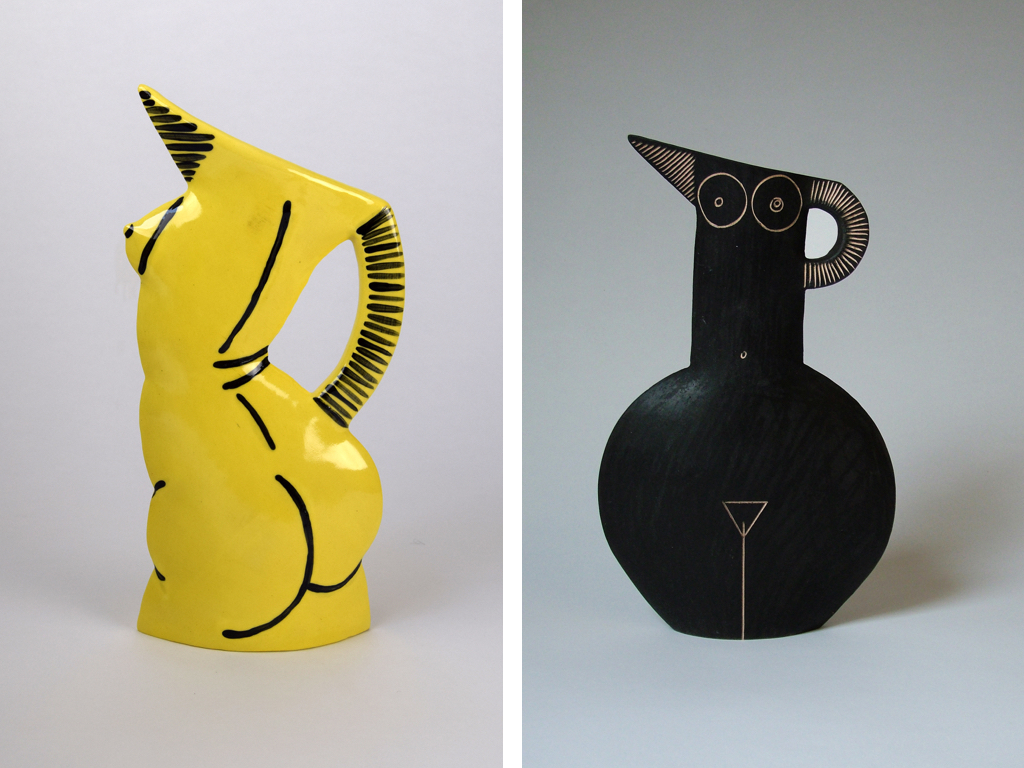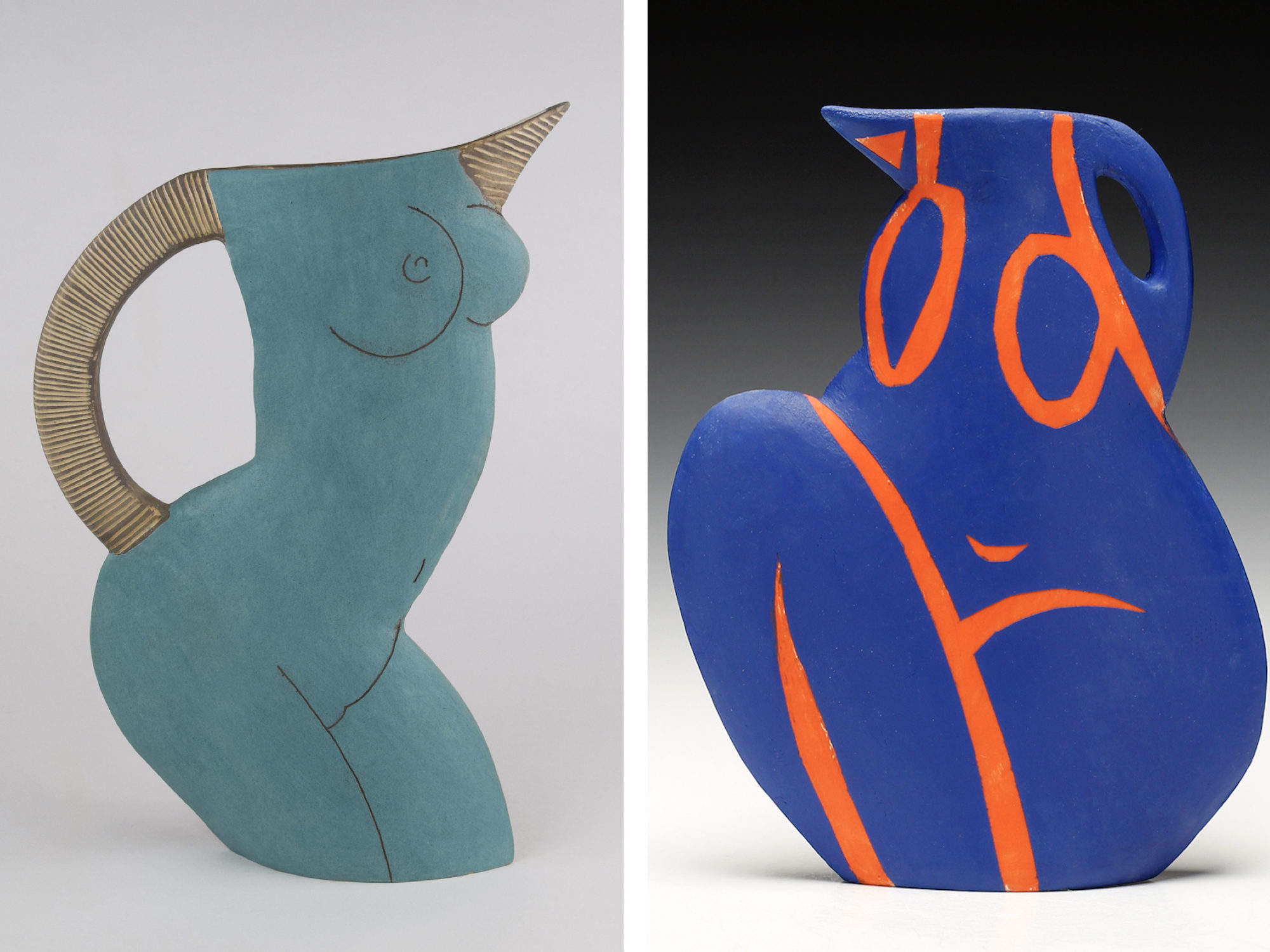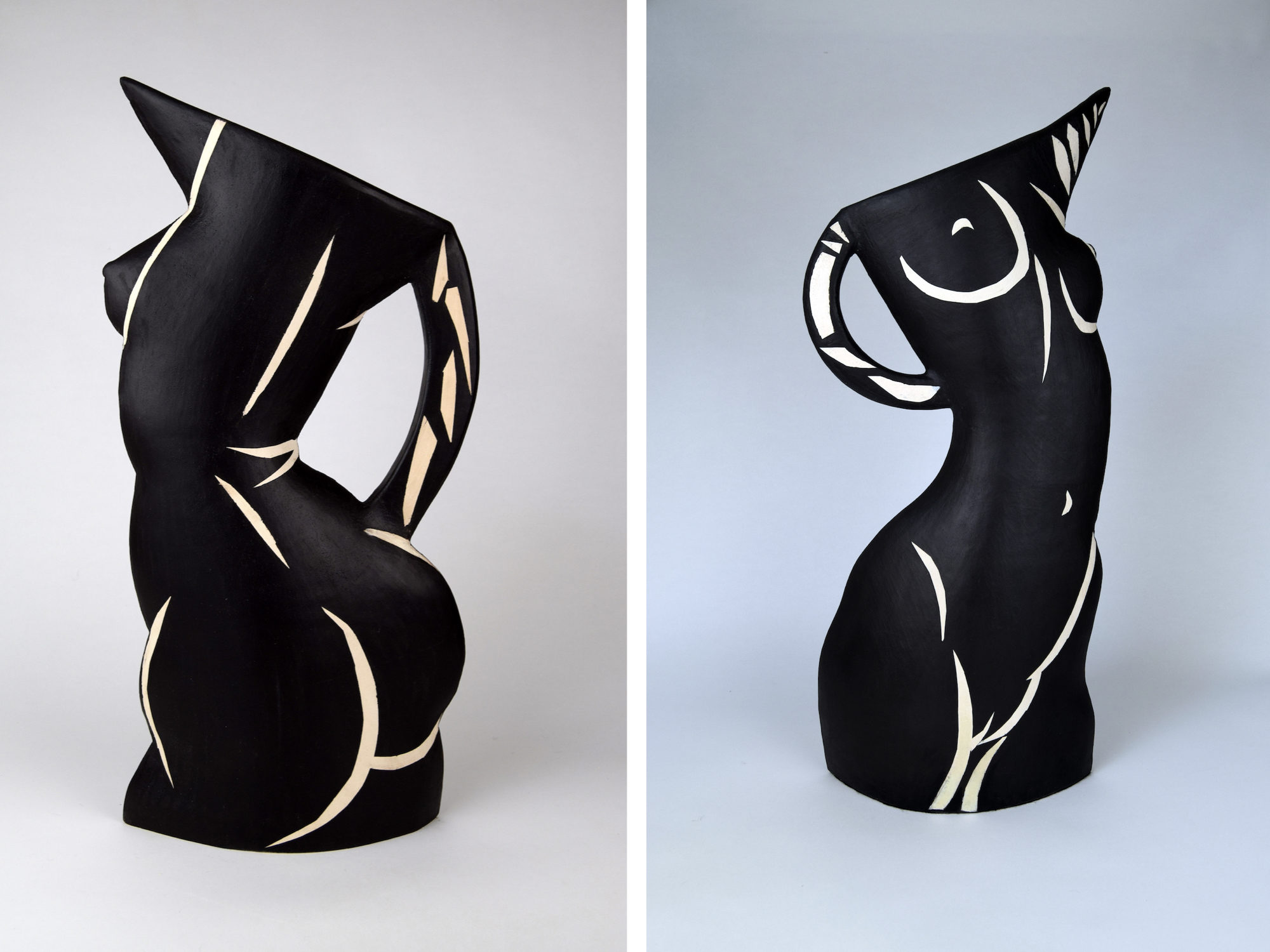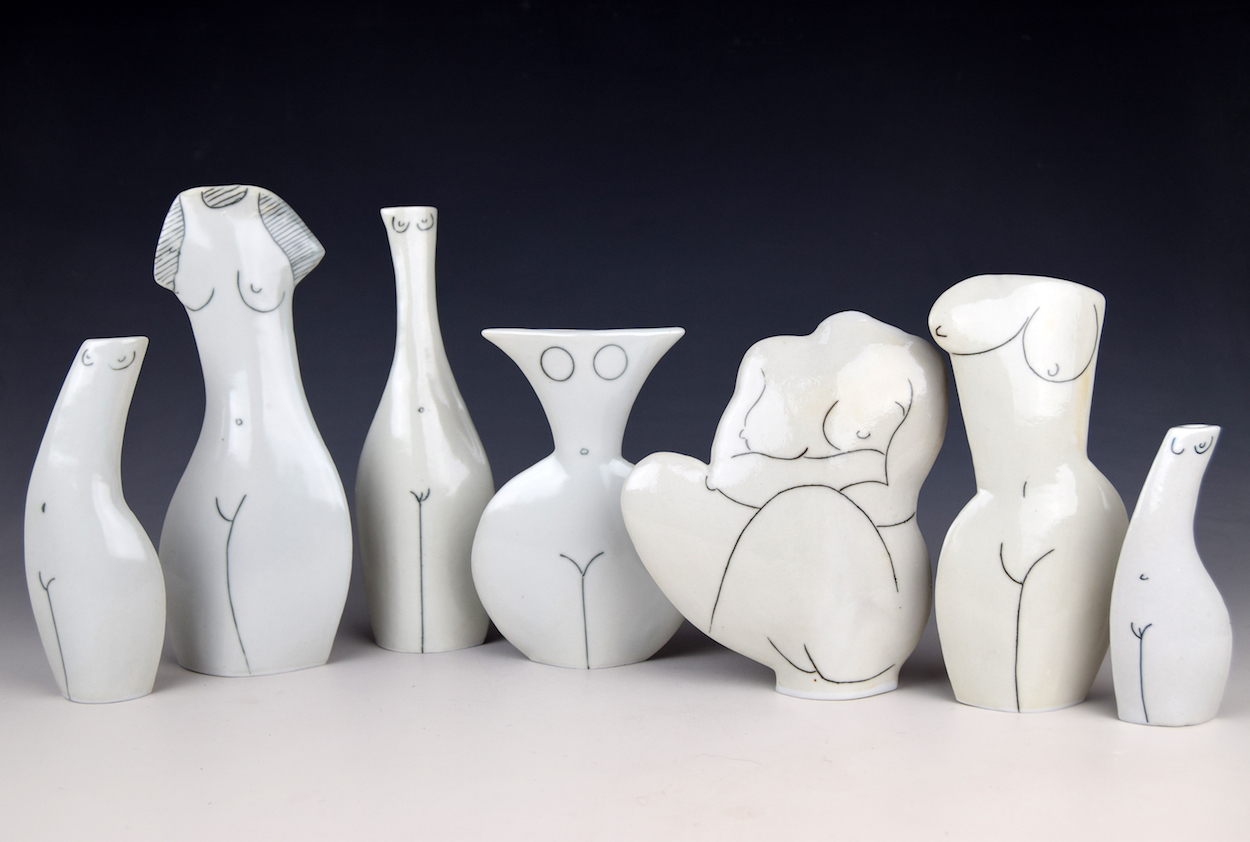During a recent interview with Emi Moore, the proprietor of the online treasure trove Casa Shop, we spoke about the thrill of discovery and the role it plays when selecting artists for her store. “I want to continue supporting designers people haven’t heard of before, like Jude Jelfs,” she said. Jude Jelfs? After our call, I Googled the name, and became an instant admirer. Jelfs studied painting and sculpture at Gloucestershire College in England, and began making functional objects in the 1970s after meeting her husband, John, with whom she runs a studio, The Cotswold Pottery, in an enchanting English village called Bourton-on-the-Water. Made of white earthenware clay (and sometimes porcelain or bronze), Jelfs’s figurative wares—which evoke the work of Alberto Giacometti, Pablo Picasso, and, perhaps most vividly, Henri Matisse—take the form of causally arched nude women. “What I hope to achieve are drawings in space that have a three-dimensional element to them,” Jelfs told me in an email. “There’s always been anthropomorphism in pottery,” she continued (the “belly” of a jug, the “neck of a vase, the “foot” of a bowl), so referencing the human body in a pottery jug is a logical progression—albeit a playful one.
But her pottery, and the process of making it, also marks Jelfs’s return to her roots, and a search for ways to combine ceramics with her fine-art background. Each piece begins with a drawing, which Jelfs translates into a paper pattern and uses to cut flat slabs of clay that she hand-builds into a jug. The exterior is painted with layers of a vitreous slip—a mix of clay and minerals, which add a subtle sheen to the finished surface—and drawn on with a needle. The seemingly flat, expressive results, which vary in size, position, and aesthetic, are a fitting way to celebrate the female form.
